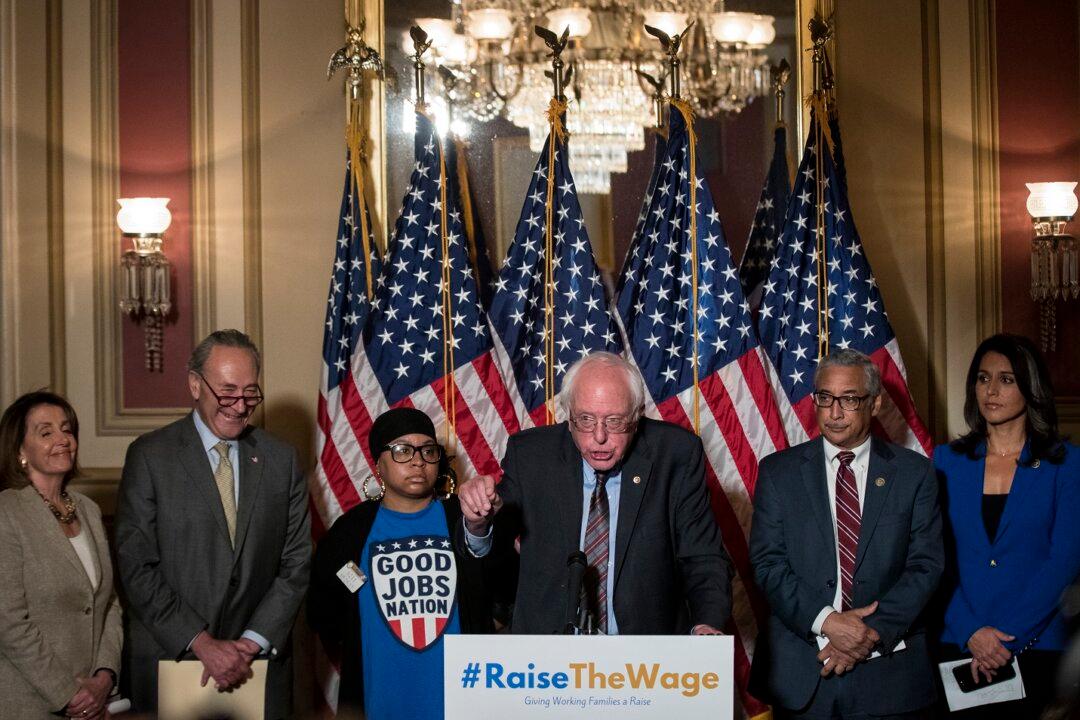WASHINGTON—House Democrats’ proposal to raise the federal minimum wage to $15 an hour by 2025 would improve the lives of 17 million people, but it would also cost the jobs of another 1.3 million, according to the Congressional Budget Office (CBO).
“In an average week in 2025, the $15 option would boost the wages of 17 million workers who would otherwise earn less than $15 per hour,” CBO said in the report, which was made public July 8.





